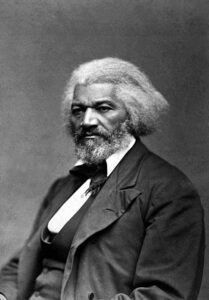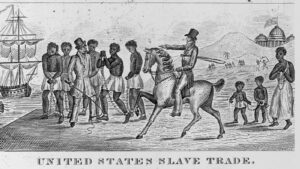The Fourth of July to the American Slave
Frederick Douglass’s “Fifth of July” speech was perhaps so powerful because he gave it the day after the traditional American holiday celebrating freedom and independence. Douglass’ speech confronted the hypocrisy and irony of the Fourth of July from a slave’s perspective.
He asked, “What to the American Slave, is your 4th of July?” and answered without question that it was a day of “gross injustice and cruelty” to which the slave was the “constant victim.” He was appalled that Americans did not see or even acknowledge how hypocritical it was to celebrate their freedom while the country’s “great sin” endured.
Though Douglass never explicitly mentioned the famous phrase from the Declaration’s preamble, “all men are created equal,” he spent a significant amount of time explaining why slaves deserved a natural right to freedom. He explained that since men had already conceded that slaves share their manhood, there was no rational basis to deny them equality. In this section of the speech, Douglass tried to appeal to the logic and reason of his white listeners. However, he later conceded that convincing argument was not enough. Instead, he proceeded with “scorching irony” so that he could “pour out a fiery stream of biting ridicule, blasting reproach, withering sarcasm, and stern rebuke.” This passage reveals that Douglass was not only devoted to his cause, but also angry— and rightfully so.
The explicit emotion and resentment made this speech extremely effective. Douglass’ descriptive vocabulary and “fiery” questions demonstrated that he was hurting. Using graphic adjectives such as “gross,” “constant,” and “scorching,” he created a descriptive reality of what American hypocrisy looked and felt like.
What I found most inspiring was his ability to call out Americans’ hypocrisy so perfectly. He made a logical and passionate argument that revealed a deeper meaning behind the Fourth of July. I am sure most white Americans did not entertain the thought that their celebration was hypocritical, but rather saw the day simply as an opportunity to commemorate their freedom. Douglass illustrated their carelessness in a way that made me think more seriously about the importance of making sure America always lives up to its promise of ensuring life, liberty, and the pursuit of happiness for all.


